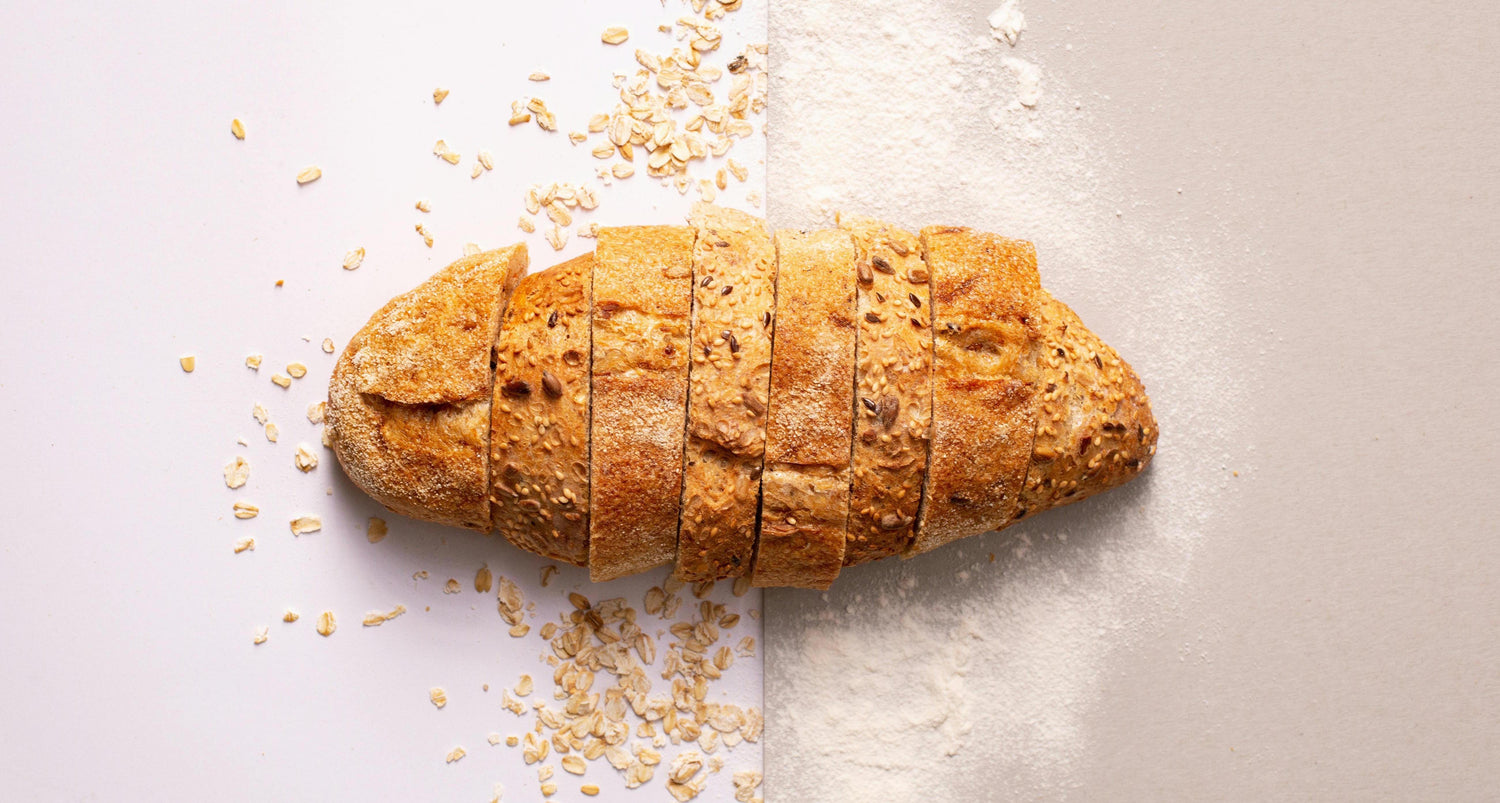
Your Helpful Guide On Good Vs. Bad Carbs
Carbohydrates, often shortened to "carbs," can be a source of confusion for those seeking a healthy diet. But did you know they're actually essential for a healthy body? The key is understanding the different types of carbs and making smart choices.
What are Carbs?
Carbs are macronutrients, meaning we need them in large amounts compared to micronutrients like vitamins. They're our body's preferred source of energy, providing the fuel to run, think, and power all our daily activities.
Once consumed, carbs are broken down into glucose, the fuel that keeps our cells energized. They also serve as a backup energy source, stored as glycogen in the liver and muscles for when we need an extra boost.
How Much Carbs Should I Eat?
The Dietary Guidelines for Americans recommend that carbohydrates make up 45–65% of your total daily calories (with the rest coming from fats and proteins). For example, if you eat 2,000 calories a day, you should get 900–1300 calories from carbohydrates, which is about 225–325 grams of carbohydrates. The amount you require can vary based on your age and physical activity level. A rough estimate of your daily calorie intake can be found through online calculators from reliable sources or by consulting a healthcare professional.
Differentiate Good Carbs vs. Bad Carbs
While carbs are important, not all carbs give the same nutritional value. Carbs can be categorized into simple and complex carbs.
Simple Carbs
These are the ones often referred to as “bad carbs”. They are quickly digested by the body, leading to a rapid rise in blood sugar levels. This can cause an energy surge followed by a crash, leaving you feeling tired and hungry. Simple carbs include both naturally occurring sugars and added sugars.
- Naturally occurring sugars are ones found in fruits and milk. While these also raise blood sugar, they come with beneficial nutrients like fiber, vitamins, and antioxidants.
- Added sugars are found in processed foods like candy, sugary drinks, and baked goods. They offer little nutritional value and contribute to empty calories. Consumption of these is linked to diabetes, heart disease, and some cancers.
Complex Carbs and Fiber
These are the "good carbs" we hear so much about. They are packed with essential nutrients and take longer to digest, providing sustained energy. Complex carbs include:
- Fruits
- Vegetables
- Whole grains (brown rice, quinoa, whole-wheat bread, oats)
- Starches (complex carbs that take longer to digest)
- Fiber (a special type of carb that aids digestion and feeds healthy gut bacteria)
Therefore not all carbs are bad for weight loss! You just have to make sure to watch which types you are eating.
Fueling Your Body Right for Peak Performance
So how can you make sure you're getting the good carbs your body needs to crush your goals?
- Focus on whole grains over refined grains for more fiber
- Load up on vegetables for essential vitamins, minerals, and fiber
- Make fruits your friend for natural sweetness and nutrients
- Limit sugary drinks, snacks, and cereals
- Read food labels, paying attention to "total carbohydrates" and "added sugars"
Need a Low-Carb Option?
Following a low-carb diet doesn't mean sacrificing deliciousness! There are still low-carb delicious and nutritious snacking options like Baseline Protein Bars. With only 4g of net carbs, they provide a perfect solution. Packed with high fiber and no added sugars, Baseline Protein Bars offer sustained energy without the sugar rush. Whether you need a quick on-the-go snack or a post-workout boost, these bars can seamlessly fit into your balanced diet.
Conclusion
Carbs are an essential part of a balanced diet. By understanding the different types of carbs and making informed choices, you can reap the benefits for sustained energy, gut health, and overall well-being!
Sources
Großkopf, A., Simm, A. Carbohydrates in nutrition: friend or foe?. Z Gerontol Geriat 53, 290–294 (2020). https://doi.org/10.1007/s00391-020-01726-1
Chandler-Laney PC, Morrison SA, Goree LL, Ellis AC, Casazza K, Desmond R, Gower BA. Return of hunger following a relatively high carbohydrate breakfast is associated with earlier recorded glucose peak and nadir. Appetite. 2014 Sep;80:236-41. doi: 10.1016/j.appet.2014.04.031. Epub 2014 May 10. PMID: 24819342; PMCID: PMC4204795.
Malik VS, Hu FB. Sugar-Sweetened Beverages and Cardiometabolic Health: An Update of the Evidence. Nutrients. 2019 Aug 8;11(8):1840. doi: 10.3390/nu11081840. PMID: 31398911; PMCID: PMC6723421.
Moore LJ, Midgley AW, Thurlow S, Thomas G, Mc Naughton LR. Effect of the glycaemic index of a pre-exercise meal on metabolism and cycling time trial performance. J Sci Med Sport. 2010 Jan;13(1):182-8. doi: 10.1016/j.jsams.2008.11.006. Epub 2009 Feb 20. PMID: 19230767.
P NPV, Joye IJ. Dietary Fibre from Whole Grains and Their Benefits on Metabolic Health. Nutrients. 2020 Oct 5;12(10):3045. doi: 10.3390/nu12103045. PMID: 33027944; PMCID: PMC7599874.
U.S. Department of Agriculture and U.S. Department of Health and Human Services: Dietary Guidelines for Americans, 2020-2025. 9th Edition. December 2020